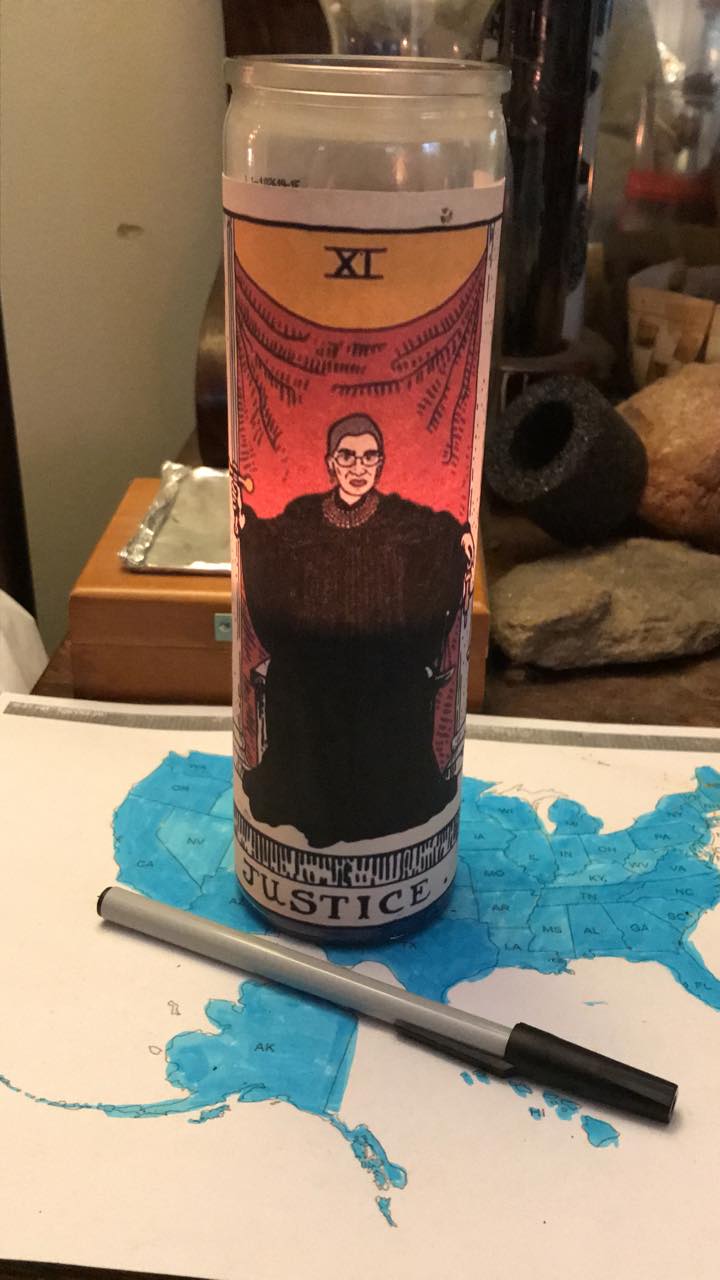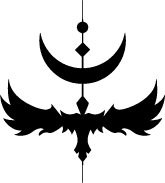The practice of hexes and curses by modern Witches
 NEW YORK – Do you curse? — It’s one of the most loaded questions in modern Witchcraft circles. And for good reason. For centuries, it was the Witch’s curse that people feared. Dead livestock, crop failure, disease – each was attributed to the Witch. History is replete with the outright persecution of magical practitioners based on ignorance or, in some cases, the fearful notion that they engaged in practices to inflict personal harm or damage to property.
NEW YORK – Do you curse? — It’s one of the most loaded questions in modern Witchcraft circles. And for good reason. For centuries, it was the Witch’s curse that people feared. Dead livestock, crop failure, disease – each was attributed to the Witch. History is replete with the outright persecution of magical practitioners based on ignorance or, in some cases, the fearful notion that they engaged in practices to inflict personal harm or damage to property.
While the Pagan spiritual movement of the past several decades has worked to mitigate antiquated perceptions about the magical arts, cursing itself remains largely misunderstood.
This debate plays out most prominently among different Witchcraft traditions. Some fully support the practice; others, like Wicca, encourage adherents to abide by the Wiccan Rede: harm none, do what thou will. Additionally, they urge followers to heed the “rule of three,” which states that whatever magic a Witch performs will eventually return to them with a three-pronged punch.
For a growing number of Witches, however, that kind of karmic thinking is passé and they’ve adopted a more flexible stance on the topic. That willingness to embrace the “darker side” of magical practice, and tread a spiritual path devoid of the rules and dogmas that might disempower followers of other faiths, may be a leading factor for magic’s proliferation among a diverse array of populations.
But a significant question remains: is it ethical to cast a curse?
“I think that when done for the right reasons, it’s not wrong to perform curses,” said Kate Freuler, author of Of Blood and Bones: Working with Shadow Magick & the Dark Moon. “Cursing is a form of self-defense and protection in many cases, so in that context, I consider it ethical. I also strongly believe that when someone is actively harming you or disrupting your life, there’s no reason to think you have to just lie down and take it. Standing up for yourself and fighting back is not unethical.”
Freuler’s book explores shadow magick, which encourages practitioners to delve more deeply into the realms of soul and psyche so that they can access a richer source of personal power. Of Blood and Bones includes tips on how to ethically use animal parts, bones, and blood in spells and rituals.
Freuler is among many Witches who are writing and speaking openly about cursing. That hasn’t always been the case. Up until a few years ago, it was common for Witches with established media platforms to scorn cursing or brand the practice as antithetical to what lies at the heart of Paganism: love and respect for Mother Earth and all of her creatures. Cursing has also traditionally been viewed as malevolent and could upend gains made by modern Witches campaigning against the notion that they, or their practices, are evil.
“There used to be a fear that expressing so-called negativity made you a less spiritual person or a bad witch, but now that kind of toxic positivity has been recognized as unhealthy,” Freuler said.
“Now, more than in the past, people are encouraged to focus on things they wouldn’t have before, like mental health, trauma, and healing. Along with this comes the admission that yes, bad things occur in life, and yes, it’s okay to deal with them as you see fit. It seems like the acceptance of cursing has become a part of that.”
There has been a discernible shift in the way many Witches relate to cursing; it is no longer taboo to broach the subject or admit to partaking in the practice. Adherents of Traditional Witchcraft, as well as those who classify their rites as “eclectic” or completely detached from a specific tradition, see the Witch as a mirror of nature –unencumbered and a force unto itself. The Witch cannot be tamed, nor can the energy that fuels magic. The paradigm shift has created a more inclusive space for discourse and exploration.
“One of the biggest reasons for this change has a lot to do with the current political climate and the awakening of so many people to issues of social justice and the violations of human rights,” said Kelden, author of The Crooked Path: An Introduction to Traditional Witchcraft. “Witchcraft, whether people want to believe it or not, has always been political. Witchcraft has historically been a tool used by the dispossessed to attain both power and justice – often through the practice of baneful magic.”
As early as 2017, various media outlets reported that thousands of Witches were hexing then President Donald Trump on a regular basis. The demand for justice for marginalized groups and other social inequalities has led to what is described as a “magical resistance” movement, inspiring Witches to use spells and rituals – specifically curses – to affect social change.
Kelden reminds us, however, that Witches have always straddled a liminal place.

Blue Wave Magic – Image credit: S. Bustamonte
“While it’s certainly true that not all practitioners work baneful magic (which is totally valid), the same cannot be true for all Witches, now or in the past,” he said. “Witches of history and lore have never been inherently benign individuals, meaning that they were more than ready to take matters into their own hands – whether it be for justice or vengeance.”
People frequently turn to the occult in times of chaos, uncertainty, and in the face of cruelty. Witchcraft offers both curious individuals and seasoned practitioners a plethora of tools to choose from to confront these challenges. And witchcraft emporiums, occult shops, and botanicas aren’t the only places to buy magical supplies these days.
A quick search on the web opens up countless possibilities in the most mainstream of places. A variety of candles and oils for the purposes of cursing can be found on Amazon. “Hex kits” are readily available on Etsy. For those who want to explore the subject more deeply, the growth in books exploring this side of magic has increased with several new titles published in the last two years alone.
Conversely, cursing rituals don’t always require exotic herbs and oils. Sometimes the simplest acts of magic are the most powerful. In The Witch’s Bag of Tricks, Melanie Marquis includes a variation of a curse she watched her mother perform at a table in the studio apartment they lived in when Marquis was ten years old.
“My mother wrote a name on a piece of paper, lit a black candle, and dripped the hot wax over the name to cover it,” Marquis said. “She was muttering the name under her breath and other words that I couldn’t make out. Then she crumpled up the paper, stuck it through with a needle, and burnt it to ashes in the candle’s flame.”
According to Marquis, the target of the curse was a person who had committed “terrible and severe” acts of animal cruelty and was guilty of domestic violence, and her mother “used the person’s own evil and cruel energies to fuel the spell.”
“That part was important to understand,” Marquis said, “because the results of the spell could be shocking or brutal – which, a few days later, proved to be true when she heard news of the person’s self-inflicted and violent demise.”
The event had a profound effect on Marquis. “Witnessing all this as a child certainly shaped my perceptions of cursing as being something that is both real and justified,” she said. A local coordinator for the Pagan Pride Project and creator of the Modern Spellcaster’s Tarot, Marquis views her role as a Witch comprehensively.
“I believe I am meant to use my magick to help prevent and ease suffering, which sometimes requires using magick to heal, and sometimes requires using magick to curse,” she said. “I believe it’s part of my job as a Witch to help repair and reweave the fabrics of our shared realities.”
 Cursing and healing are often believed to be opposite sides of the same coin. The energy that fuels magic is neither black nor white, but it is the practitioner’s intention that distinguishes a protection spell from a curse. The former is generally about keeping harm at bay while the latter seeks to direct harm at a specific person or situation, be it in the name of justice or vengeance.
Cursing and healing are often believed to be opposite sides of the same coin. The energy that fuels magic is neither black nor white, but it is the practitioner’s intention that distinguishes a protection spell from a curse. The former is generally about keeping harm at bay while the latter seeks to direct harm at a specific person or situation, be it in the name of justice or vengeance.
For many Witches, the willingness to cast a curse comes after years of discernment; others have the proverbial light bulb moment following a particular event or experience.
Dorothy Morrison, the author of Utterly Wicked: Hexes, Curses and Other Unsavory Notions as well as several other titles, was a Wiccan priestess for many years and eventually came to the realization that the concept of karma didn’t fit into her own spiritual practice. She now identifies as a Witch with no religious affiliation.
“Dispensing with the law of three came through observation – at least for me,” Morrison said. “I watched the actions of others to see what would happen. And what I discovered was that bad things didn’t always happen to folks who behaved poorly. Good things didn’t always happen to those who exhibited kindness and generosity. Sometimes it was quite the opposite. Neither good nor bad behavior had anything to do with it. The catalyst, instead, was how people felt about their behavior after the fact: bad things tended to happen to those who felt guilty about what they’d done, while blessings seemed to follow those who were happy with their choices. And that was good enough for me.”
Morrison’s perspective on cursing is directly related to her belief that the world operates on a system of checks and balances. “There is so much light for so much dark, so much sweet for so much sour, so much birth for so much death,” she explained. “The spiritual world is set up the same way. And in order for practitioners to meet with magical success, they must be able to achieve a sense of balance and walk between the worlds evenly. Thus, I believe that Witches who can’t hex, can’t heal. They must not only become very familiar with the dark, but embrace it.”
Morrison’s point is well-founded. In embracing the dark, Witches and magical practitioners often discover a unique source of light – the inner fire of self-awareness and empowerment. Some even find a deep well of healing. But all shadows have their hidden dangers, and an overwhelming number of Witches will agree that the decision to cast a curse starts with a healthy dose of self-reflection.
“First, take an honest look at your motivations,” Freuler explained. “This involves your shadow self because you’re digging down into the dirty parts of your mind and dealing with what you find there, which isn’t always pretty. That forces you to grow, especially if you discover something in there that you were avoiding. If you find that you’re acting out of pettiness or cruelty, you might want to work through that before proceeding. You don’t want those emotions to be what’s fueling your magick.”
Today’s more open exploration of cursing in the Witchcraft community is not just a fad. As such, it becomes a body of wisdom, bringing with it certain responsibilities for those who will engage in the practice. This sense of accountability is echoed widely in the Pagan community.
“Cursing magick isn’t for everyone. If it doesn’t feel right to a person, then they probably have no business dabbling in it. It’s a special type of Witch work for a certain type of Witch, suited for the responsible and those willing to embrace it when necessary,” said Marquis. “There is a whole new generation of Witches who are more open, willing, and interested in learning how to use their power in this way. Honestly, I don’t think there are a whole lot of Witches from my own generation who are open to the idea of cursing, which makes it even more important for those Witches who do know cursing magick to pass along their knowledge to others.”



